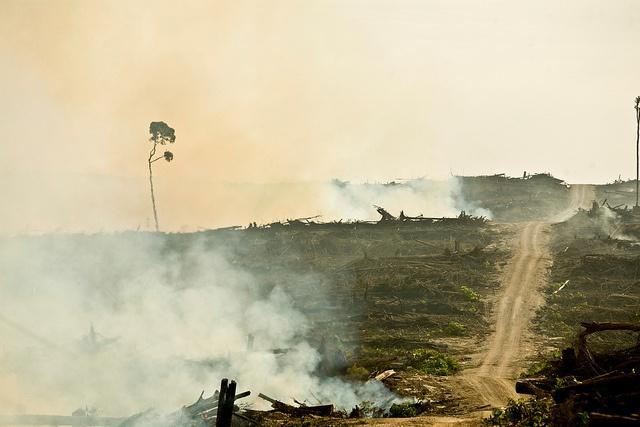
Cargill is serious about stopping deforestation in its supply chain. The company recently issued a new policy on forests, which it describes as a “comprehensive approach” to ending deforestation.
The new policy piggybacks on what Cargill has already done. Last September, Cargill endorsed the New York Declaration on Forests at the U.N. Climate Summit where the company pledged to cut deforestation in half by 2020 and end it in 2030. Cargill has worked with the Nature Conservancy since 2004 on reducing deforestation in its supply chains. The same year, the company joined the Roundtable on Sustainable Palm Oil (RSPO).
The new policy is truly comprehensive, as an overview of it shows:
- Uses a multi-stakeholder approach. Cargill will work with farmers, suppliers, government and civil society organizations and customers to find ways to protect forests.
- Evaluates future capital investments based on the policy’s forest protection principles.
- Continues efforts to ensure a sustainable palm oil supply chain in Indonesia and Malaysia, the two countries that produce most of the world’s palm oil.
- Evaluates strategic sourcing of fiber-based packaging and performs a risk analysis of its corrugated, paper bag and folding carton supply chains.
“Deforestation is a global issue, but a local challenge. We’re committed to working with farmers, government, business, advocacy organizations and consumers to help craft and implement solutions tailored to the diverse landscapes we seek to protect,” said Paul Conway, Cargill’s vice chairman, in a statement. “Our policy on forests is one of the ways we are working to feed a growing population while also sustaining vital forest ecosystems for generations to come.”Cargill released an update on progress toward its goal of achieving 100 percent sustainable palm oil supply chains by 2020, a goal it is on track to meet. Cargill is also on track to meet its goal of achieving 100 percent traceability to the mill level by December 2015 and to provide palm oil that is 100 percent traceable to sustainable plantations by 2020.
Late last year, Cargill acquired a new plantation called Poliplant Group in West Kalimantan, Indonesia. The company is working with the environmental consultancy firm Daemeter to bring the plantation in line with Cargill’s forest policy, with the goal of achieving RSPO certification.
Palm oil is used in many products we use daily, including personal care products. Worldwide demand for palm oil is expected to double by 2050. Palm oil plantations are expanding in Indonesia and Malaysia, and so is deforestation. About 55 to 60 percent of palm oil expansion in both countries from 1990 and 2005 caused the loss of virgin forests, according to estimates by Princeton University and the Swiss Federal Institute of Technology. Palm oil plantations are the leading cause of rainforest destruction in both countries.
Given the widespread loss of forests in Indonesia and Malaysia, Cargill’s no-deforestation policy is an important one. It is one that can lead the way for companies to create a palm oil supply chain that is free of deforestation.
Image credit: Rainforest Action Network via Flickr

Gina-Marie is a freelance writer and journalist armed with a degree in journalism, and a passion for social justice, including the environment and sustainability. She writes for various websites, and has made the 75+ Environmentalists to Follow list by Mashable.com.














